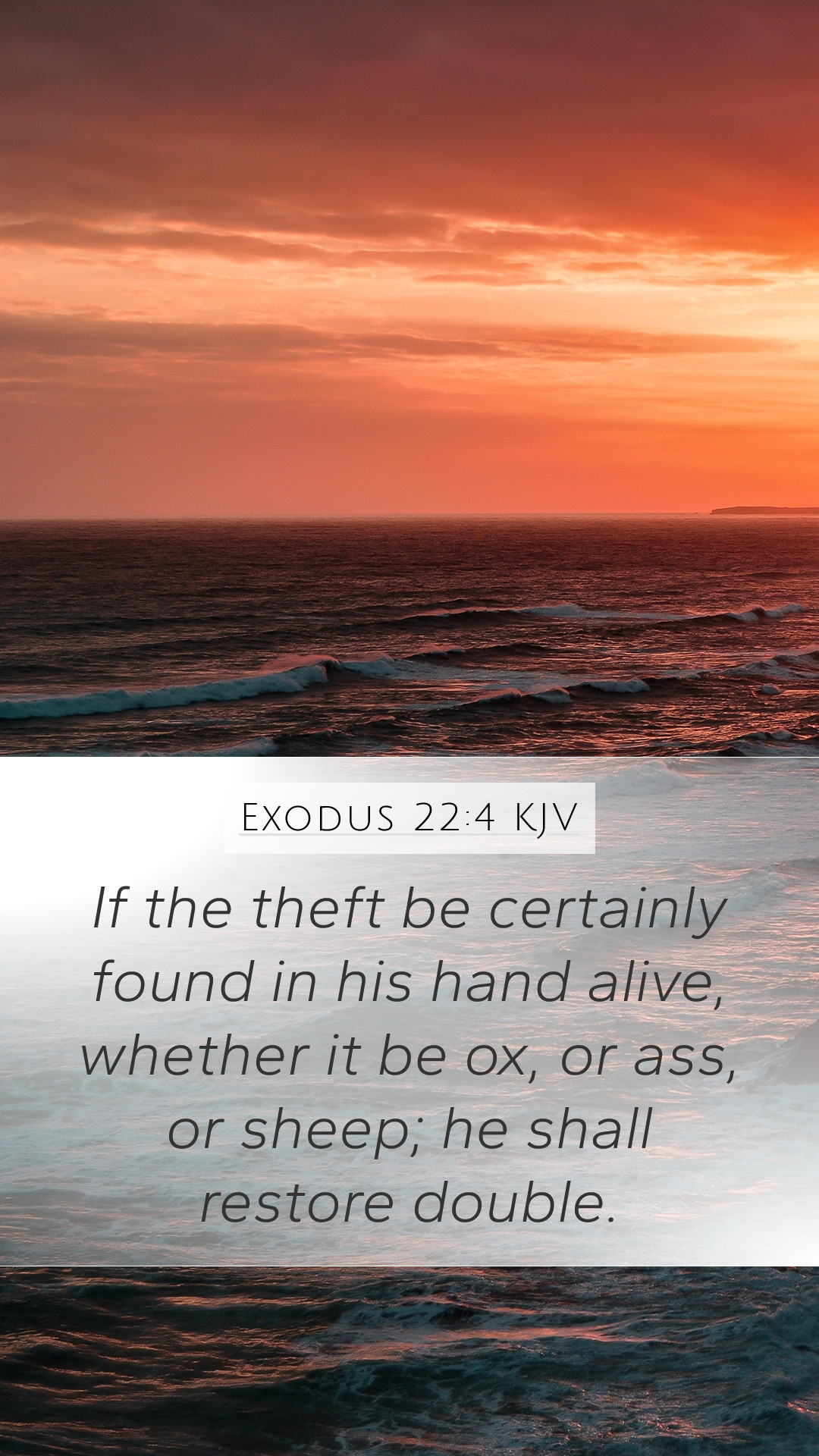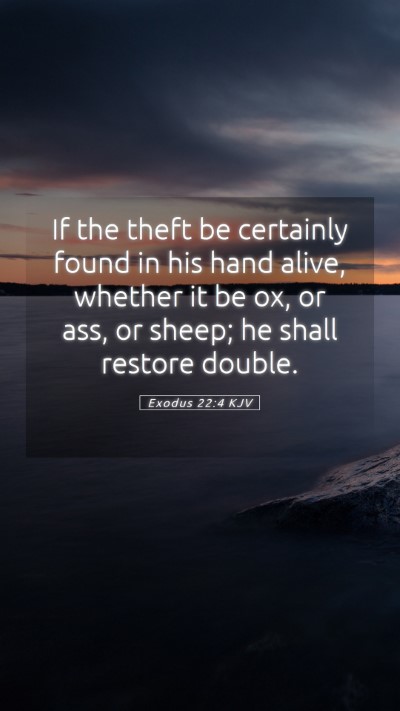Bible Verse Meaning and Commentary for Exodus 22:4
Bible Verse: Exodus 22:4 states: "If the theft is certainly found alive in his hand, whether it be ox, or ass, or sheep; he shall restore double."
This verse is part of the larger legal code given to the Israelites, outlining the consequences of theft and the principles of restitution in the community.
Meaning and Interpretation
Exodus 22:4 addresses property theft, providing a clear consequence for the offender. Here, three important aspects emerge from the commentary by Matthew Henry, Albert Barnes, and Adam Clarke:
- Theft and Responsibility: The verse emphasizes personal responsibility regarding one’s possessions. If a thief is caught with stolen goods, he is obliged to return what he has taken, and in doing so, compensates the victim, thereby restoring justice.
- Restitution Principle: The requirement to pay back double signifies not just a punishment for theft but also a restoration of trust and balance to the affected party. Henry points out that this principle underlines the importance of integrity within the community, illustrating God’s expectation for His people to act justly.
- Equality in Justice: Albert Barnes notes that this law is fair and equitable, applying the same rules whether the stolen item is a valuable ox or a sheep. The consistency in justice serves to maintain a harmonious society where theft is discouraged.
Biblical Exegesis
From a biblical exegesis perspective, this verse not only lays out the law but reflects deeper moral and ethical principles central to the Israelite community:
- Covenantal Living: Adam Clarke emphasizes that the covenant between God and His people calls for behaviors that uphold community standards. The restitution enforced here reflects broader covenantal values at work.
- Material vs. Moral Value: This verse shows that material possessions hold significant moral implications. The act of theft is not merely a crime against property but an offense against a person, requiring moral rectification.
- Spiritual Lessons: Beyond theft, there’s a spiritual lesson about God as a restorer. Just as restitution is mandated here, God also makes restoration possible for those who turn back to Him in repentance.
Applications to Daily Life
The insights gained from Exodus 22:4 extend beyond historical context to practical applications for today’s life:
- Integrity in Action: People are called to maintain integrity in their dealings with others, promoting fairness and accountability.
- Restoration Relationships: This principle encourages individuals to seek restoration in relations where harm has been done due to wrongdoing.
- Understanding Justice: Justice goes beyond punishment; it involves making things right. This understanding can guide modern legal systems and personal relationships.
Cross References
Exodus 22:4 can be cross-referenced with other scriptures that highlight restitution and justice:
- Leviticus 6:4-5: Discusses the need for restitution if someone wrongs another, including making amends.
- Proverbs 6:30-31: Addresses the seriousness of theft and the consequences involved when one steals out of hunger.
- Ephesians 4:28: Encourages those who steal to stop and work for a living, emphasizing integrity in one’s actions.
Conclusion
In summary, Exodus 22:4 serves as an essential piece of scripture, laying down foundational principles of justice, restitution, and morality within the community. Understanding this verse through various commentaries helps in grasping its significance within the broader context of Scripture.
Such insights form an integral part of bible study lessons and discussions in bible study groups, reinforcing what it means to live justly and equitably in accordance with God’s commands.


